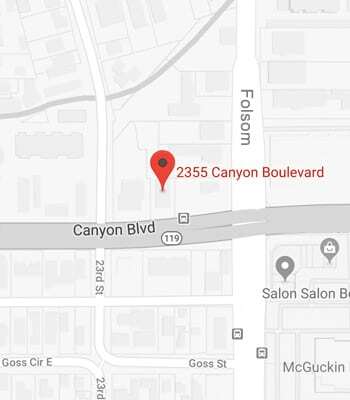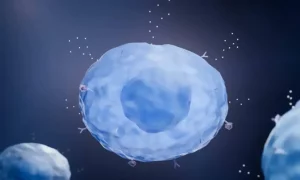Hair loss in women is more common than you might think. Women both young and old may have clumps of hair come out in the shower or see areas of thinning in the front or top of their head.
Societal standards of beauty often center on healthy hair and skin. So now female hair loss comes with emotional strain on top of worries about potential health problems. Not to mention that stress about your looks and health can lead to high levels of cortisol, which can lead to further hair loss!
If this sounds like you and you want to know how to stop hair loss and regrow hair naturally, keep reading! This article explores female hair loss, with an emphasis on hair loss related to hormonal imbalances from conditions like hypothyroid, mold toxicity, and chronic infections.
Boulder Holistic Functional Medicine in Boulder, Colorado, approaches hair loss in women from a functional medicine perspective. Namely, their providers help you search for the cause of female hair loss before they provide solutions to regrow your hair. Because once the original cause is addressed, your body can heal and your hair can start to regrow naturally.
What are the Leading Causes of Hair Loss in Women?
If you search “female hair loss” online, you will most likely find a list of genetic conditions that lead to thinning hair and female-pattern baldness. Genetics can contribute to hair loss – androgenic alopecia is the top cause of hair loss in both women and men. But genetic causes aren’t the only reason why women lose hair.
Hormonal imbalances are a possible underlying contributor to female hair loss. In particular, issues with the thyroid gland and female sex hormones can lead to hair thinning and hair loss in women of all ages.

Understanding the connection between hormones and hair loss is crucial in developing an effective treatment plan. If hormonal imbalances aren’t addressed, treatments focused on regrowing your hair may work for a time. But when you stop the treatment a few months down the line, all of that new hair growth could fall out all over again.
Sustainable, healthy hair growth relies on healthy hormones.
Your hormones exist in a delicate balance in your body. They are the messengers that run your metabolism, digestion, sexual activities, stress levels, and so much more. When one set of hormones is out of balance – whether that’s your thyroid, stress, or sex hormones – all of the other systems work harder to compensate.
Hair growth isn’t essential for your survival – at least, not from an evolutionary standpoint. So, if your body has to choose between balancing your internal systems and growing hair, guess which one is going to win?
Let’s take a closer look at two of the main hormonal systems that can lead to hair loss in women – thyroid and sexual hormones.
How Do Thyroid Hormones Contribute to Hair Loss?
Thyroid hormones regulate metabolism, growth, and development in the body. If the thyroid gland is underactive or overactive, you may experience a range of symptoms, including hair loss.
Women with an underactive thyroid, also known as hypothyroidism, often experience hair loss. Hypothyroidism can cause other symptoms as well, including dry skin, brittle nails, and hair breakage.
Thyroid hormones are essential for hair growth. When thyroid hormones are low, hair growth can slow down and hair follicles can become thin and brittle, leading to hair loss. Speak with your doctor if you suspect your hair loss is due to a thyroid issue; the only way to find out for sure is with a comprehensive blood test.
How Do Female Hormones Contribute to Hair Loss?
The female sex hormones, including estrogen and progesterone, are responsible for women’s menstrual cycle and reproductive health.
Your sex hormones naturally fluctuate – on a monthly basis to produce your menstrual cycle, and on a lifetime basis that begins with menstruation and ends with menopause. A certain amount of fluctuation is normal, but sometimes, your female sex hormone levels fall out of balance.

Fluctuations in female sex hormones can contribute to hair loss. Hormonal imbalances, such as an excess of androgens or a decrease in estrogen, may cause thinning hair in the front or bald spots on the top of your head. A decrease in estrogen disrupts the balance of hormones throughout the body which can reduce hair growth.
Women’s sexual health isn’t reliant on testosterone, but a balance of estrogen, progesterone, and testosterone is necessary for optimal health. Unusually high or low levels of androgens (like testosterone) can cause hair loss by shrinking hair follicles and shortening the hair growth cycle.
Postpartum Hair Loss
Postpartum hair loss is a completely natural occurrence, linked to falling estrogen levels. Though hair loss after giving birth is temporary, it can be distressing. For most women, postpartum hair loss normalizes by their child’s first birthday.
However normal hair loss might be, you can see that even normal hormonal fluctuations can affect hair growth and lead to hair loss.
If you suspect hormones may be contributing to your hair loss, your first step is to contact your primary care doctor. They can give you a realistic idea of what could be causing your hair loss, and may take a few tests to make sure your hair loss isn’t related to hormonal imbalances.
Hair Loss from Mold Toxicity and Infection
Boulder Holistic Functional Medicine specializes in treating women (and men) suffering from mold toxicity. A common result of mold exposure is hair loss.
However, mold toxicity isn’t the only outside pathogen that can cause hair loss. Stressful infections and viruses – including covid – may also result in female hair loss.
The reason you lose hair from mold toxicity and infection is because these pathogens create inflammation and instigate a redistribution of resources to combat the illness or exposure. Mold toxicity and infection also interrupt the balance of hormones. That’s why many women experience changes in their menstrual cycle after covid, an illness, or when dealing with mold toxicity.
Many of Boulder Holistic’s patients come to the office after their hairdresser tells them their hair is thinning. If your hair loss starts suddenly or you notice your hair looks much thinner than it did, always check with your doctor. The sooner you identify the cause of your hair loss, the sooner you can implement some natural solutions to regrow hair.
How Long Does it Take to See Results?
Treatment for hair loss related to hormonal imbalances will vary based on you and the unique underlying causes of your hair loss. Women with hormonal imbalances may need bioidentical hormone replacement therapy to help rebalance their hormones. Or, if the cause is related to mold toxicity, you may need time to relocate to a mold-free environment, and even more time to detox from mold.
The length of time it will take to see results will also depend on you. You need to be patient and stay consistent with your treatment for optimal results. However, consistent functional medicine treatments for hormonal imbalances and mold toxicity can help most people see an improvement in hair growth within a few months.
What to Use for Women’s Thinning Hair
Boulder Holistic recommends several supplements to regrow hair for women. Here are a few supplements Boulder Holistic may recommend for you:
- RegeneMax Plus Xymogen
- (biotin, Silica)
- Thorne Collagen Plus is a collagen supplement that supports hair skin and nail production
- Prostate Flo (Saw Palmetto) to help block conversion of testosterone to the more potent DHT
- Mulitvitamins like ONE by Pure Encapsulations, and MitoCore can help with nutritional gaps that can contribute to hair loss.

Work with Boulder Holistic
Thyroid hormones and female sex hormones are both potential causes of hair loss in women. By addressing underlying hormonal imbalances and implementing natural interventions, it’s possible to promote hair growth and prevent hair loss. Remember to consult with a healthcare provider before making any significant changes to your diet or lifestyle, and before starting any new supplements or medications.Female hair loss isn’t always permanent, especially if you can find and treat the cause. Contact Boulder Holistic Functional Medicine in Boulder, Colorado, if you think your hair loss might be related to hormonal fluctuations, mold toxicity, or if you want to know more about functional medicine treatments for hair loss.
Email Us
Have a question? Need to schedule an appointment? Send us an email. We'll get back to you right away.

Get Directions
2355 Canyon Blvd
Suite 102
Boulder, CO 80302

Call Us
Need an appointment, prescription refill or have questions? Call us from 9:30am to 4:00pm.
303-390-1245









